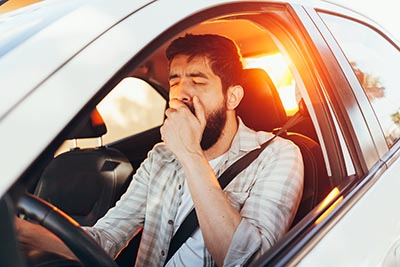
When clocks “fall back” early Sunday morning, Americans may be on the roads more at night which could translate to more driver fatigue and hazards on the road, according to a Virginia Tech expert.
Daylight saving time ends on Saturday, and any time change can exacerbate drowsiness, says Virginia Tech Transportation Institute expert Matt Camden.
On Sunday, Nov. 5 at 2 a.m., clocks will go back an hour, and we will gain an hour of sleep, part of the twice-annual time change that affects most, but not all, Americans.
Camden says your body may need a few days to adjust.
To avoid fatigue, Camden offers the following advice:
- Avoid driving during from 2-4 a.m. Driving between 2-4 a.m. is particularly dangerous because a person’s circadian rhythm is at its lowest during this timeframe. And when a driver is already sleep-deprived, the desire to sleep during the circadian low is even greater.
- Get a full night’s sleep. Drivers should try to sleep at least seven to eight hours in order to avoid drowsiness. However, one night’s rest may not be enough for someone who has experienced several sleepless nights. In those cases, the driver will need several days of restful sleep to compensate for the sleep debt.
- Pay attention to signs of drowsy driving. Signs of drowsy driving include slow eyelid closures, yawning, gentle swaying of the head, seat fidgeting, difficulty staying in your lane, difficulty maintaining speed and delayed reactions.
- Be aware of other factors impacting drowsy driving. Situations that increase drowsiness are driving alone, monotonous road conditions, such as long straightaways with limited changes in the environment), long drives, and extended periods of heavy traffic.










